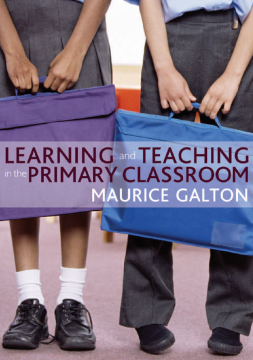
Additional Information
Book Details
Abstract
Providing a framework for understanding the individual needs of pupils, this book describes how teachers can tailor their teaching methods to maximize learning. It explains how to take account of pupils' knowledge, skills and attitudes when selecting and applying principles of instruction, in order to make learning in the classroom as successful as possible. Packed with informative case studies and classroom examples, this book explores: how learning is conceptualized; direct instruction; interactive teaching; teaching as scaffolding; and how to overcome obstacles to learning.
Table of Contents
| Section Title | Page | Action | Price |
|---|---|---|---|
| Preface | |||
| Acknowledgements | |||
| 1. Error and myth | |||
| 2. Biases and blind spots | |||
| 3. Lenses and lock-ins | |||
| 4. Rigour for complexity | |||
| 5. Power, participation, and knowledge: knowing better together | |||
| 6. Knowing for a better future | |||
| Glossary of Meanings | |||
| Abbreviations | |||
| Index |
